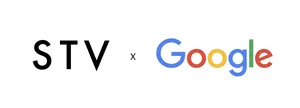Coronavirus (Covid-19): How we’re helping users around the world
Organizing the world’s information and making it universally accessible and helpful to people, organizations, and businesses has always been at the core of everything we do. As COVID-19 spreads across the globe, it’s affecting our communities around the world and in the Middle East and North Africa. Whether you need timely information about your health, help studying or working from home, or how to update your business’s working hours, here is how we are helping.
Helping you find the information you need
People continue to come to Google to search for vaccine information, travel advisories and prevention tips. Our SOS Alert in Search connects people with the latest news plus safety tips and links to more authoritative information from the World Health Organization (WHO). For people specifically looking for information about symptoms, prevention or treatments, we’re working to expand our Knowledge Panels for health conditions to include a COVID-19 panel.
When you search for the virus you will see our SOS alert plus safety tips and links to more authoritative information from the World Health Organization.
On YouTube, we’ll be using the platform to direct users to the WHO or other locally relevant authoritative organizations and will donate ad inventory to governments and NGOs in impacted regions to use for education and information. Google Maps continues to surface helpful and reliable local information.
On YouTube, virus-related searches surface a box at the top of the results page linking to the World Health Organization website.
Fighting misinformation on our platforms
We’re also committed to removing COVID-19 misinformation on Google, YouTube, Google Maps, the Play store, and across ads. We are committed to help users find information from authoritative and reliable sources during times of breaking news and global pandemics.
Working and studying remotely
Employees, educators and students are using products like Gmail, Calendar, Drive, Classroom, Hangouts Meet and Hangouts Chat, as well as G Suite for Education, to be productive while working and learning remotely, including hundreds of thousands of students in Hong Kong, Vietnam and Italy, where schools have been closed.
Starting this week we rolled out free access to our advanced Hangouts Meet video-conferencing capabilities to all G Suite and G Suite for Education customers globally and in the Middle East and North Africa, including Egypt, KSA and the UAE, until July 1, 2020. We’re also adding resources to be able to support increased demand for public livestreaming on YouTube. We’ve seen increased interest in affected regions as people look to be able to connect virtually with their communities when they are unable to do so in person.
For students studying remotely, there are hundreds of channels that cover all levels such as these Arabic educational channels based on official curricula from kindergarten to high school:
- Ain Doroos (Saudi Arabia)
- Egypt for Education (Egypt)
- Iraqi Educational (Iraq)
- Madrasa.Net (Algeria)
- Nafham (Egypt, Saudi Arabia, Syria, Algeria, and Kuwait)
Resources for business in times of uncertainty
As communities throughout the world respond to COVID-19 (coronavirus), we know that this time presents unique challenges for businesses. Here are some tips and recommendations to help you navigate this for your employees and customers. Click here for more tips.
Communicating with your customers
- If your hours of operation have changed, edit your Business Profile on Google.
- Use Posts on Google to communicate information directly on your Business Profile on Google, like special offers or inventory updates.
- Consider setting an email auto-reply with answers to frequently asked questions.
Communicating with your employees
- Store contact information for your employees, vendors, and clients online so it’s accessible from any device.
- Make a business continuity plan, and share it with employees via an email address they can access outside of the office.
- If you have more than one business location, give local managers the authority to take appropriate actions based on conditions at their location.
Modifying your advertising (if necessary)
- Edit your ads as needed to let customers know whether you're open for business and if you offer helpful services like expedited shipping.
- Pause campaigns if your product availability is impacted by supply chain issues or increased demand.
- If your business relies on customers from countries most affected by the virus, consider prioritizing your ad budget to other locations.
This post is an amended version of the blog post published earlier this month by Google CEO, Sundar Pichai.





